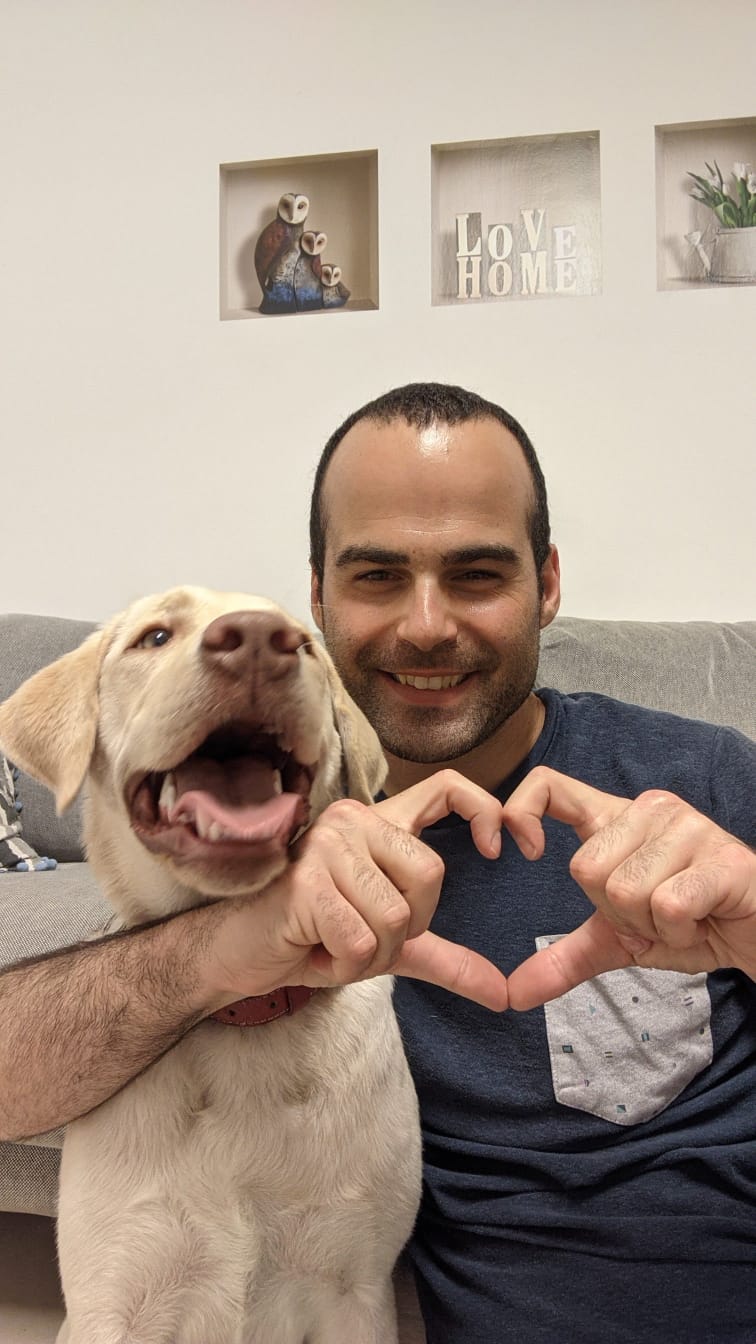
Tomer Reuven: My experience as a foster family for a guide dog
The decision to volunteer with a guide dog was very significant for me and not an easy one to make: on one hand, I was looking for a meaningful and

The decision to volunteer with a guide dog was very significant for me and not an easy one to make: on one hand, I was looking for a meaningful and
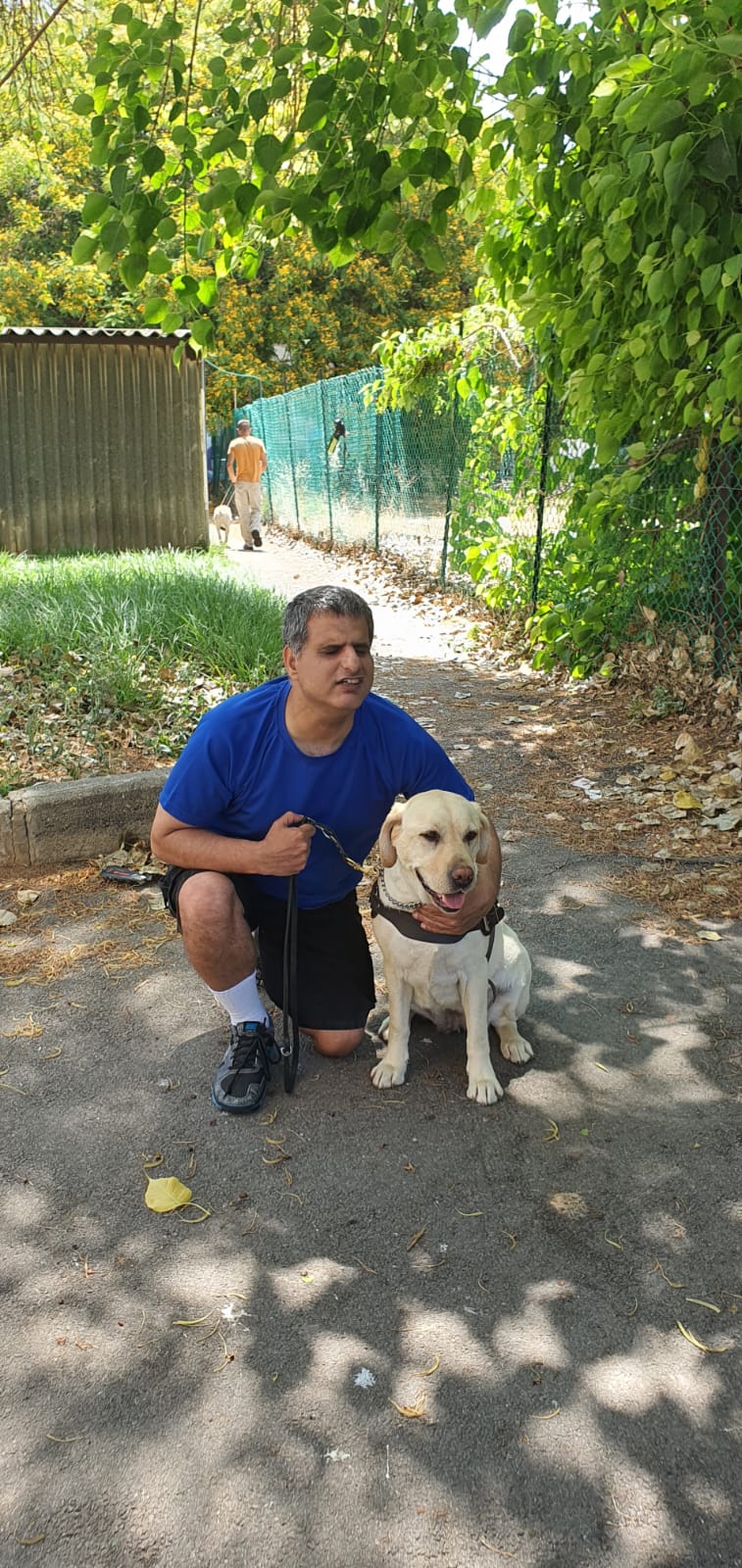
My name is Bashari Oded, 49 years old.
I live in Petach Tikva.
I have been a guide dog user for 25 years, which in my opinion is a whole kind of experience for me as a blind person.
My current dog name is Donna, in the past I had received from ‘Seeing eyes for blind in Israel’ four Guide dogs.
It is a fact, Dona is a pair of eyes, for me, She is also a friend, not to mention that she helps me as a blind to change my social status in the community.
Walking with her is completely different from walking with a white cane.
‘Seeing eyes for blind in Israel’ is an excellent guide dog school. Is further blind with a high level of requirements and excellence that result with high quality of guide dogs.

The decision to volunteer with a guide dog was very significant for me and not an easy one to make: on one hand, I was looking for a meaningful and satisfactory volunteering experience in the community; and on the other hand, I was concerned about a yearlong commitment and the farewell that awaited me in the end of it. Eventually, the desire to contribute overcame everything and I had butterflies in my stomach as soon as I submitted my application. Four months later I received Zoe – a sweet little furry ball that was waiting for me in the organization’s car. What a joy! I had become a father.
So, what is raising a guide dog for me?
1. Getting excited every time she learns something new.
2. The first nights – lack of sleep and poop in the cage.
3. Providing explanations to security guards when entering places.
4. Understanding that you need to take your eyes off the screen and focus on giving or receiving love.
5. Explaining to strangers that this is dog is female, and not male.
6. Picking up poop again.
7. No! Bad dog! (Yes… It will happen a lot at first)
8. Combing her fur every evening.
9. Always keeping an eye on her.
10. Listening to people who stop me on the street and tell me the most touching stories about their Labrador dog or the desire to one day have such a dog.
11. Refusing people who ask me how much I want for her. lol…
12. Getting compliments from strangers when they understand what it takes to raise a guide dog, and my blushing over it every time.
13. Seeing after a few months how the tools I acquired in the organization bear fruit and seeing Zoe learn important habits to continue her path.
14. Getting to know a community that is a family – other foster families who go through the same process meet for playdates with the dogs.
15. Celebrating my dog and her siblings’ one year birthday! Making her a fancy cake and seeing her delighted look of happiness.
16. Receiving unconditional love when I’m sad, sick or just want her by my side, because she has become my best friend.
All in all, this is the most significant volunteering experience I have ever had in my entire life, and I am grateful for every moment I was part of the process. I learned a lot, met new friends, including Zoe, and most importantly – I saw at the end of the process how that sweet little furry ball serves the community and contributes every day. I feel pride! ☺
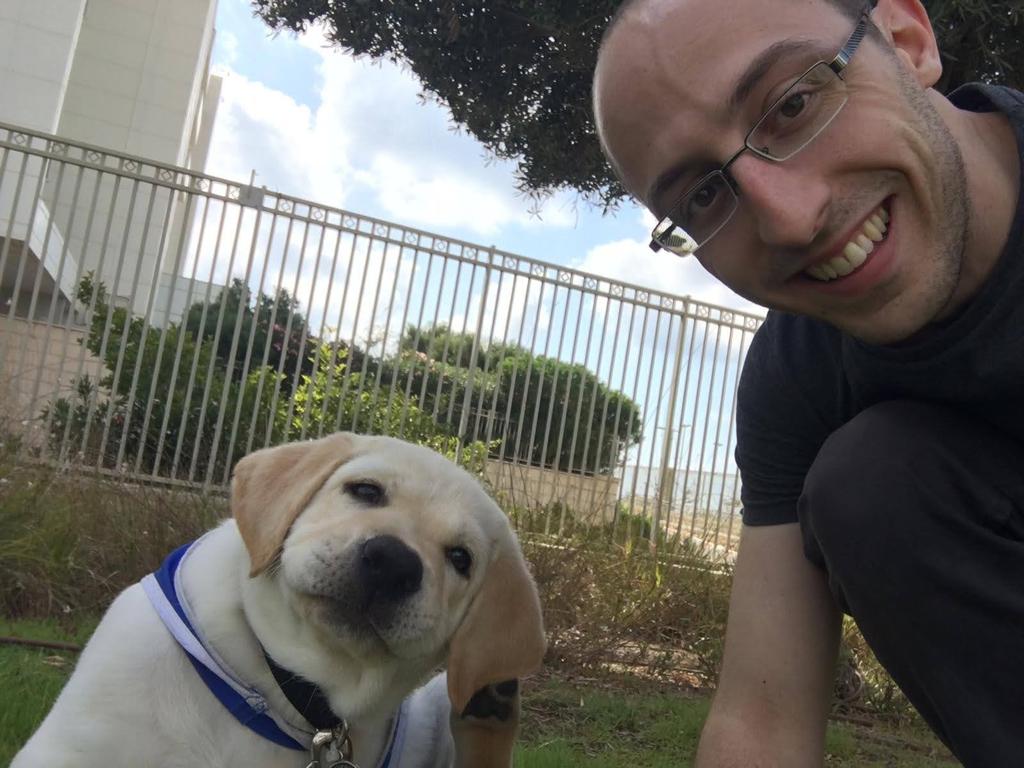
I got my foster puppy, Gordy, in August 2018.
Ofer David:
Half a year before fostering, I visited one of the labs in the Technion and saw someone with a Labrador puppy wearing a blue vest with the inscription “Seeing Eyes for the Blind”. Naturally, I was intrigued, and approached her to hear details about the organization and the puppy training process. I was happy to find out that the organization was looking for students and people with an active lifestyle, and that the fact that I have never had a dog before (although I always wanted one) is not a problem at all, since the entire process is accompanied by the organization’s team.
At the end of the meeting, I immediately contacted the organization and entered the waiting list for guide puppies.
When the puppies were born, the trainer came to my apartment for an orientation conversation that included a full explanation of the process, instructions for the first weeks (what to expect from a puppy’s behavior, and how to react to different situations), and identifying potential risks for the puppy in the apartment.
Two weeks later, the trainer returned with a puppy that looked like a cloud of yellow fur and equipment to start the journey – food, bowls, a leash, a comb, a cage, toys and anti-flea treatment.
All puppies’ names from the same litter start with a certain letter, and as a fosterer I was honored to choose an appropriate name, which will accompany the puppy for its entire life as a guide dog.
This time the letter was G, and the puppy I got was the chubbiest in the lot, so I named him “Gordy”.
This is how the foster care period began – an exciting and joyful period, sometimes challenging as well, which undoubtedly changed my life.
At the beginning, the puppy is taught to do his or her business outside, to walk correctly with a leash and to behave a certain way at home. Next come the more complex commands – sit, stay put, walk forward on the left side (as he or she will do when they are on duty), and stop before crossing the road.
The training instructions, as well as all the basic equipment and related costs, are regularly provided by the organization. The other foster families within the organization are always happy to help with any question or problem.
One of the most important things in the process is to expose the puppy to as many stimuli and daily events as possible, and therefore Gordy accompanied me, by car and public transportation, almost everywhere – to work and classes, exams, shopping, fun days at the pool, walks in the snow and streams, to the movies (not an easy challenge when there’s a lot of popcorn scattered all over the floor 😉) to pubs, hotels… and basically, anywhere.
From a legal point of view, the foster puppy can be brought anywhere, as a guide dog, if he or she wears the vest and as long as the foster certificate issued by the organization is at hand.
After about a year and a half, it was time to say goodbye. Gordy moved to the organization’s facility to go through the advanced training process, where the dogs learn to deal with obstacles and daily challenges for guide dogs, such as height obstacles, going down the road, walking correctly with a harness, etc.
Naturally, saying goodbye wasn’t easy, because Gordy was close to me for a long time and became an inseparable part of me, but it is a tremendous satisfaction to know that he is going to completely change the life of a visually impaired person and allow him or her a whole world of opportunities.
I was happy to receive updates from the training process and to hear that Gordy successfully passed all the tests.
When he completed training and was about to officially become a guide dog, I visited Gordy and he led me on a harness through an obstacle course while I was blindfolded.
I couldn’t imagine a more exciting state of coming full circle, where the puppy you’ve raised and trained now leads you and knows he’s practically your eyes.
Today Gordy serves as an active guide dog and lives with his new family in the center of Israel.
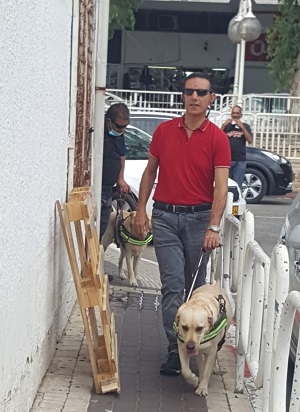
Hanania Cohen is a blind man who serves as chairman of the Kiryat Shmona Municipality Employee Committee.
Without the close escort of his guide dog, he would not have been able to achieve this position.
We all have dreams and goals that we strive to fulfill and achieve, even though sometimes they seem far away and almost impossible to reach.
For a blind person in Israel, the dream of living independently and making a living with dignity is, unfortunately, far from being reachable. Many blind people cannot enjoy this freedom, which we take for granted, without the close escort of a guide dog.
Hanania Cohen, Chairman of the Kiryat Shmona Municipality Employee Committee, succeeded in fulfilling a dream that is challenging for anyone: reaching a position of senior influence in his city, in a role that allows him to help many people and lead the employees of the Kiryat Shmona Municipality.
Hanania, 46 years old, is a blind man who does not take a step without his guide dog Zen, who has been accompanying him for years.
For Hanania, reaching such a position is a huge step, which would not have been possible without a guide dog.
“Wherever I am, my dog Zen is with me. He is part of me. Without him, I would not be able to fulfill my position or reach it at all. On a normal workday, in every discussion at the municipality or even in protests held in our city, Zen is with me and allows me to function almost like a normal person.
It is important for me to clarify that a guide dog is not a kind of luxury or a pet. It is an existential need for a blind person, because without it there is practically no ability to move around independently. It is important for me to point this out, so that more blind people can, like me, lead an independent lifestyle, and beyond.”

Sigalit Avraham shares:
“My biga is a five-year-old Labrador, who entered my life almost three years ago, during COVID-19 pandemic. She is such a cute and gentle dog.
From the first moment I met Biga, I knew we would have a special bond.
She is extremely emotionally intelligent, she is attentive to me, very sensitive and containing.
At first Biga was withdrawn and quiet, but from the moment she adapted to our house and to me, she became a very-very happy dog.
I play with her a lot, talk to her, share thoughts with her and she is my best friend and best confidante in the world.
Biga is my fourth guide dog and the second one from Seeing Eyes for the Blind organization. She’s an excellent dog and leads me in the best possible way. Thanks to her delicate nature and caution, my movement in space is very safe.
For me, getting around with a guide dog, compared to getting around with a cane, is a real step up, a world of difference. For me it changed life for the better, safer and happier.”
In the photo: A woman and a dog wearing a harness sit on a park bench on a sunny day, smiling at the camera. The woman hugs the dog’s head and holds a bowl of water.
Attached is the first single from the Sigalit Avraham’s debut album, a singer born blind. She sang a song to celebrate the one-year anniversary with her best friend – Biga, her guide dog.
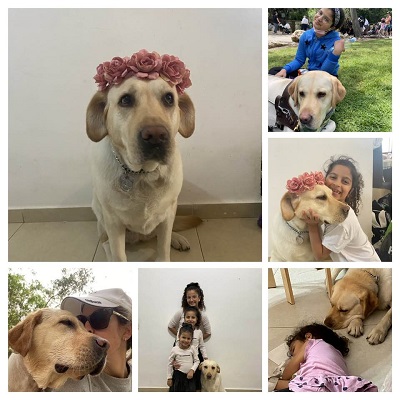
I was always told that there is one life before and another life after, but I never understood what that meant.
My name is Nufar Shafir, 33 years old, mother of three young daughters. The youngest is two and a half years old.
About three years ago, on my twenty-eighth birthday, I was injured in the head by a football and lost my sight within four hours. After several operations, I was still partially blind.
About a year and a half ago, I went through rehabilitation training with a cane, but was unable to regain my independence and security that have been taken from me.
The realization that something big needed to change began the day I took my middle daughter, who was four years old at the time, to a friend. I didn’t recognize with the cane that I had stepped down into the road. My younger daughter, a baby at the time, was on me in a carrier. Suddenly, in the middle of the road, I heard the loud honk of a car, and only then did I understand where I was. My daughter had just let go of my hand because she had dropped something. The helplessness and panic I experienced at that moment paralyzed me. I started screaming at my daughter, so that she would give me her hand, and figure out the way back to the sidewalk. Since then, I haven’t gone out with my daughters anymore. I realized it’s too dangerous and I can’t go on like this!
Today, after a professional and intensive course for guide dogs at “Seeing Eyes for the Blind”, I realized that I could go back to being a more independent mother, because my amazing dog Baileys will notify me before going down the road. The confidence to take my daughters with me is back – the excitement to return to being an independent mother is huge – this is a dream come true.
The tears that are in my eyes are mixed with the words written now, out of feelings of gratitude and appreciation for “Seeing Eyes for the Blind”: To the amazing team that gave me Baileys, who taught me professionally and devotedly how to walk with her. Thank you for a perfect match of the dog and me, that even resembles me in her personality. Thanks a million!
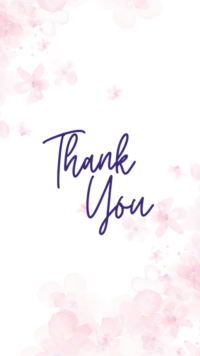
The Seeing Eyes for the Blind organization would like to personally thank all the good people, the foster families, the volunteers and our partners without whom the blind in Israel would not have been able to receive guide dogs. The association is grateful every hour, every day, for the enormous support for the success of this huge project. Without you, dear people, it would not have been possible! Over the years, the foster families have become a cohesive and supportive community, not only regarding guide dogs. Foster families also support each other.
The families engage in meaningful service, with love and devotion – preparing the puppies for their life’s role, along with the knowledge that the expected day of farewell will come, when they hand over the puppy that they raised to a blind person who needs them.
